New £50 note featuring LGBTQ icon Alan Turing revealed
The gay WWII codebreaker has been immortalised on a British banknote, joining Winston Churchill, Jane Austen and JMW Turner.
By Will Stroude
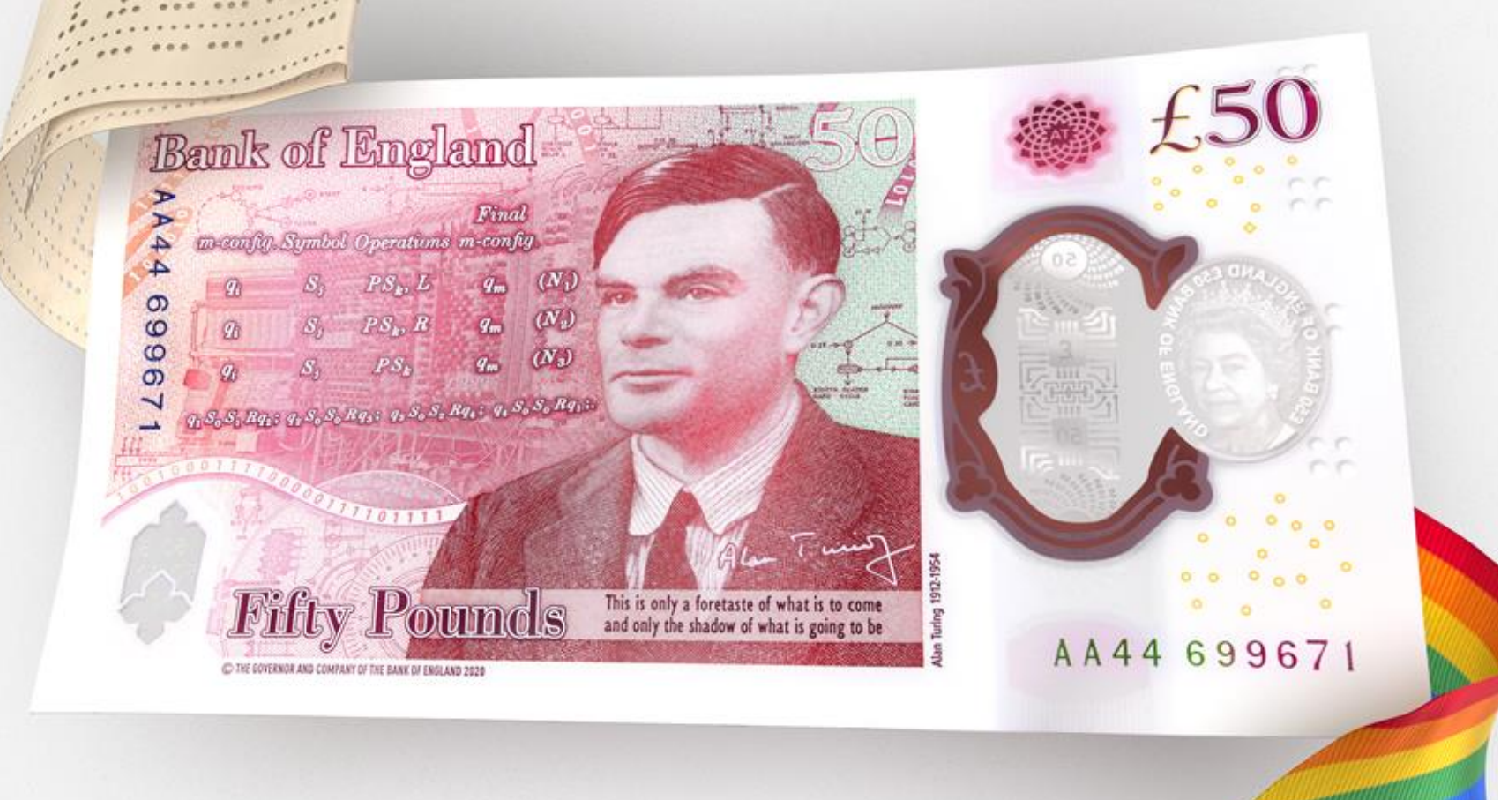
Words: Will Stroude
The new £50 bearing the face of LGBTQ icon and and Second World War codebreaker Alan Turing has been revealed by the Bank of England.
The Treasury note, which is the last British banknote to make the transition from paper to polymer, enters circulation on 23 June 2021, on what would have been the mathematician’s birthday.
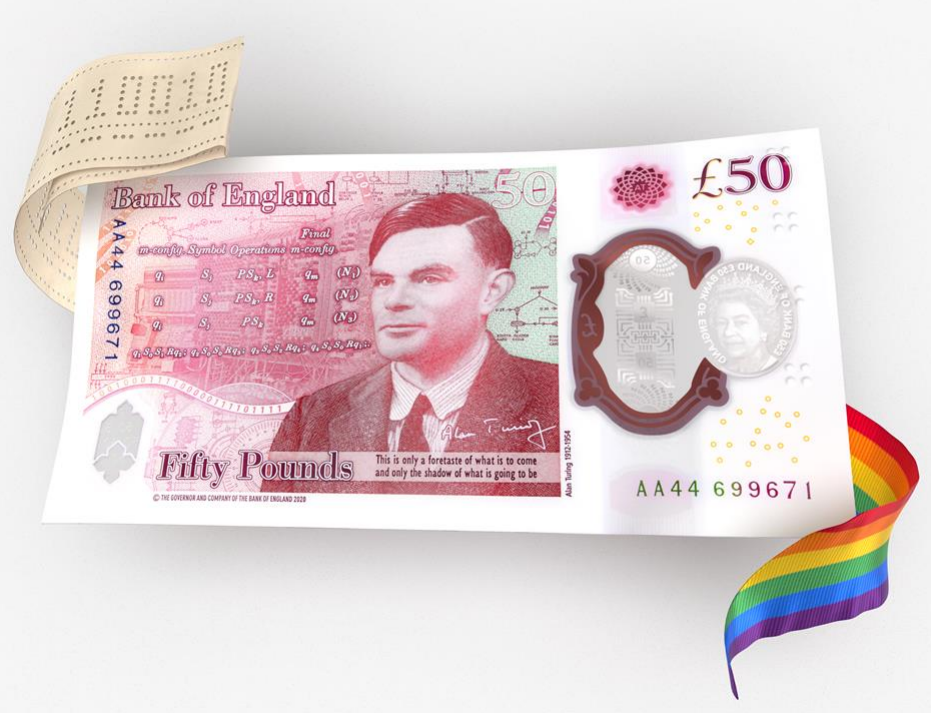
The design, which was unveiled in a virtual ceremony Bank of England Governor Andrew Bailey on Thursday morning (25 March), uses a famous 1951 portrait of Turing by Elliott & Fry, which is part of the Photographs Collection at the National Portrait Gallery.
Other design features include a table and mathematical formulae from Turing’s seminal 1936 paper “On Computable Numbers, with an application to the Entscheidungsproblem” Proceedings of the London Mathematical Society, which is widely considered to be the foundation of modern computer science.
The £50 note also depicts a ticker tape featuring Alan Turing’s birth date (23 June 1912) in binary code. The concept of a machine fed by binary tape featured in the Turing’s 1936 paper.
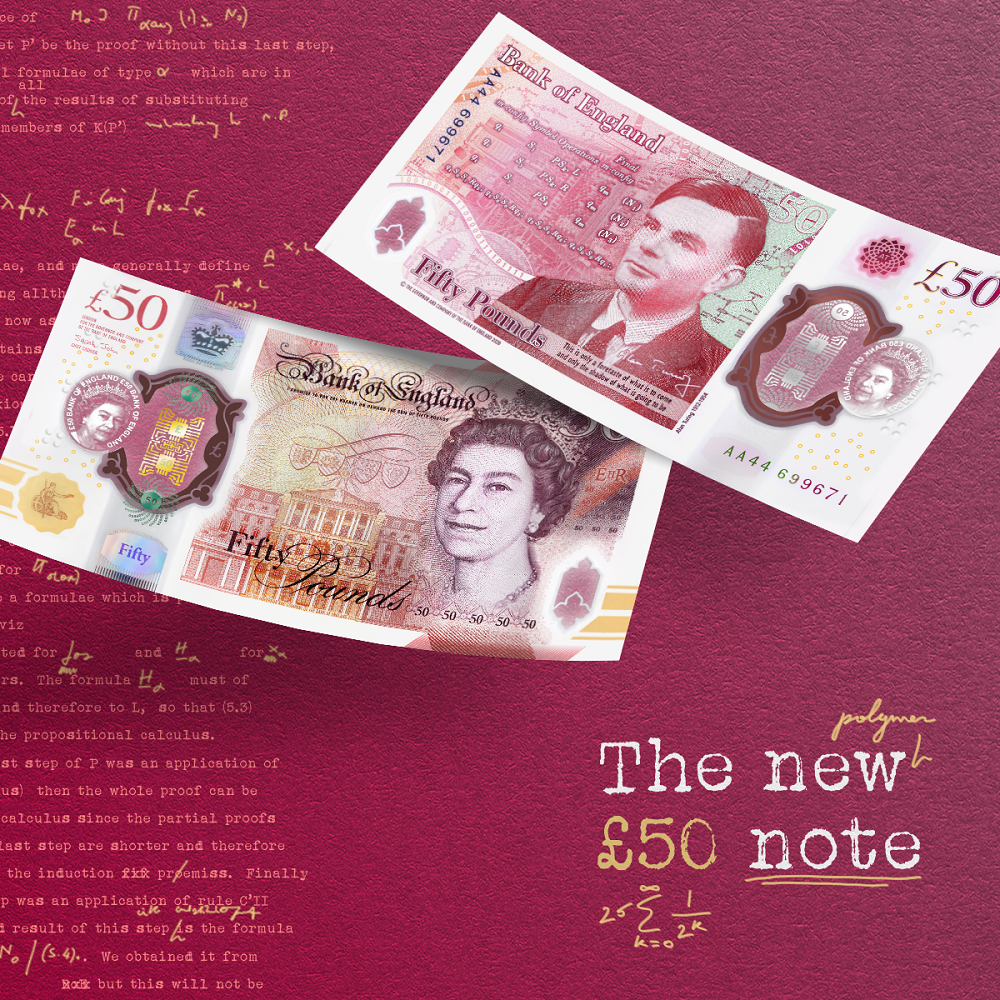
Born in London in 1912, Turning went on to study at Cambridge before becoming a key figure in the breaking of German ciphers at Bletchley Park during the Second World War. His work cracking the German Enigma code is widely credited with bringing the war to a more swift end.
In 1952, Turing was convicted of gross indecency because of his homosexuality, pleading guilty and opting for a course of hormone treatments that effectively amounted to chemical castration rather than being imprisoned. He was also immediately barred from working for the British security services.
Turing died just two years later, at the age of 41, as a result of cyanide poisoning which ruled to be suicide.
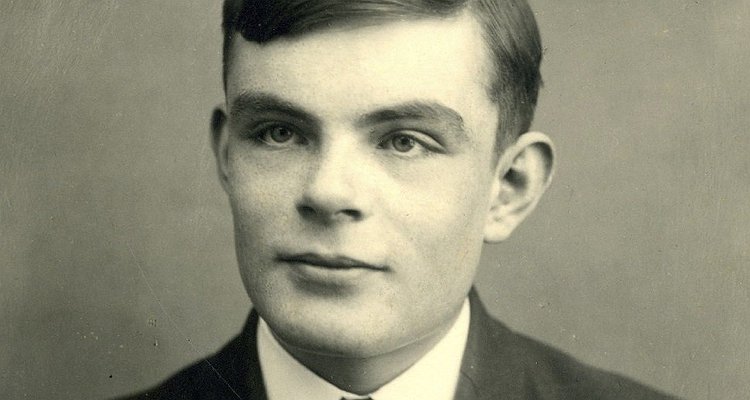
In 2009, then-Prime Minister Gordon Brown apologised for the British government’s “appalling” treatment of Turing. In 2013, Queen Elizabeth II signed a pardon for Turing’s conviction, an act which led to the introduction three years later of ‘Turing’s Law’; the process by which gay men convicted under Britiain’s historic anti-gay laws can apply for an official pardon.
With his place on the £50, Turing joins a select group of historical figures to appear on current British banknotes, including former prime minister Winston Churchill (£5) novelist Jane Austen (£10) and artist JMW Turner (£20).
Commenting on the new note, Governor Andrew Bailey said: “There’s something of the character of a nation in its money, and we are right to consider and celebrate the people on our banknotes. So I’m delighted that our new £50 features one of Britain’s most important scientists, Alan Turing. Turing is best known for his codebreaking work at Bletchley Park, which helped end the Second World War.
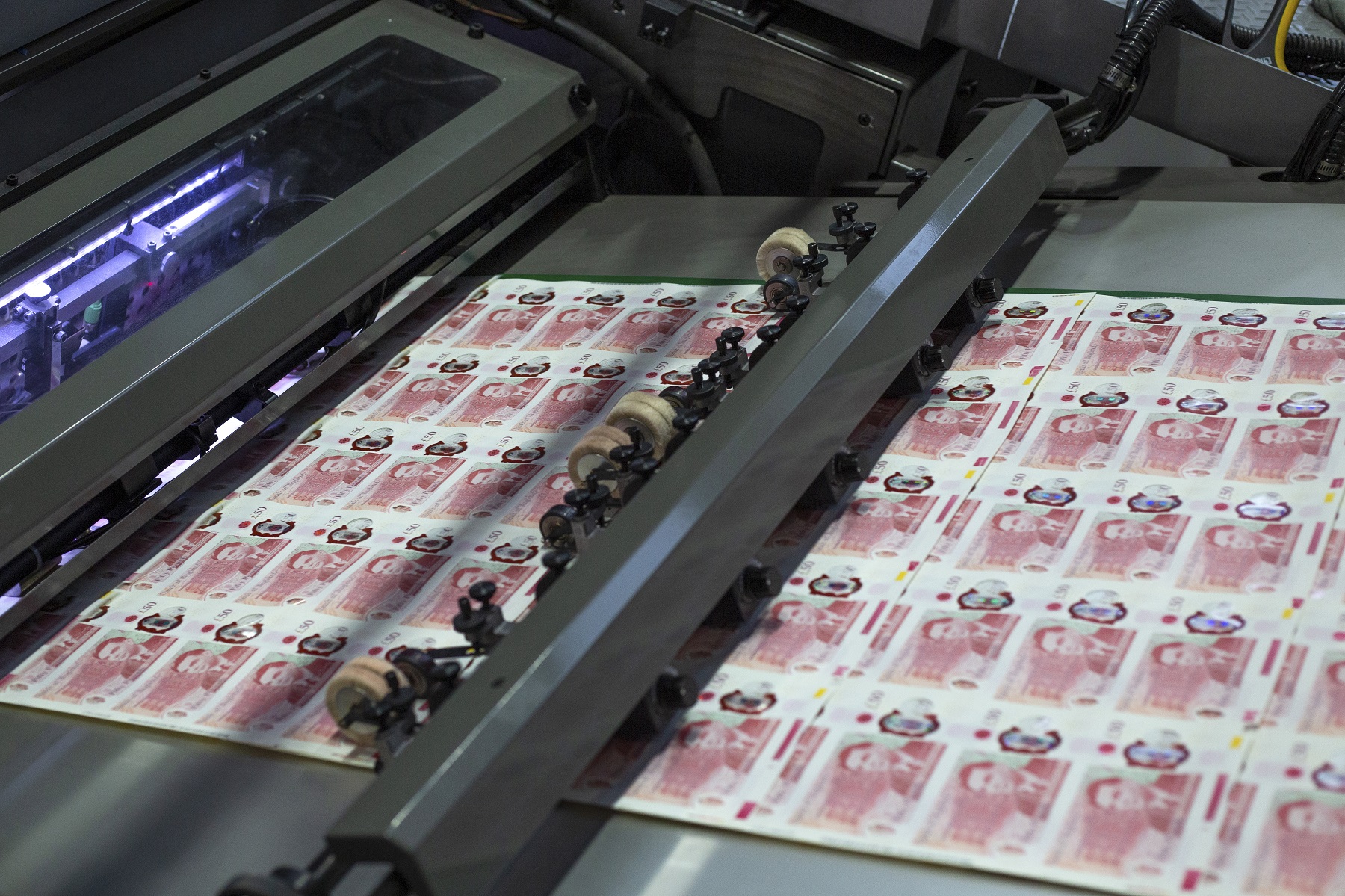
“However in addition he was a leading mathematician, developmental biologist, and a pioneer in the field of computer science. He was also gay, and was treated appallingly as a result. By placing him on our new polymer £50 banknote, we are celebrating his achievements, and the values he symbolises”.
The new £50 note will feature the signature of Sarah John, the Bank’s Chief Cashier. She said: “This new £50 note completes our set of polymer banknotes. These are much harder to counterfeit, and with its security features the new £50 is part of our most secure series of banknotes yet. These security features are common across all our banknotes, so if you can check one, you can check them all.”

The Bank of England’s Chief Cashier Sarah John with the new £50 note (Image: Bank of England)
Director of GCHQ Jeremy Fleming said: “Alan Turing’s appearance on the £50 note is a landmark moment in our history. Not only is it a celebration of his scientific genius which helped to shorten the war and influence the technology we still use today, it also confirms his status as one of the most iconic LGBT+ figures in the world.
“Turing was embraced for his brilliance and persecuted for being gay. His legacy is a reminder of the value of embracing all aspects of diversity, but also the work we still need to do to become truly inclusive.”
